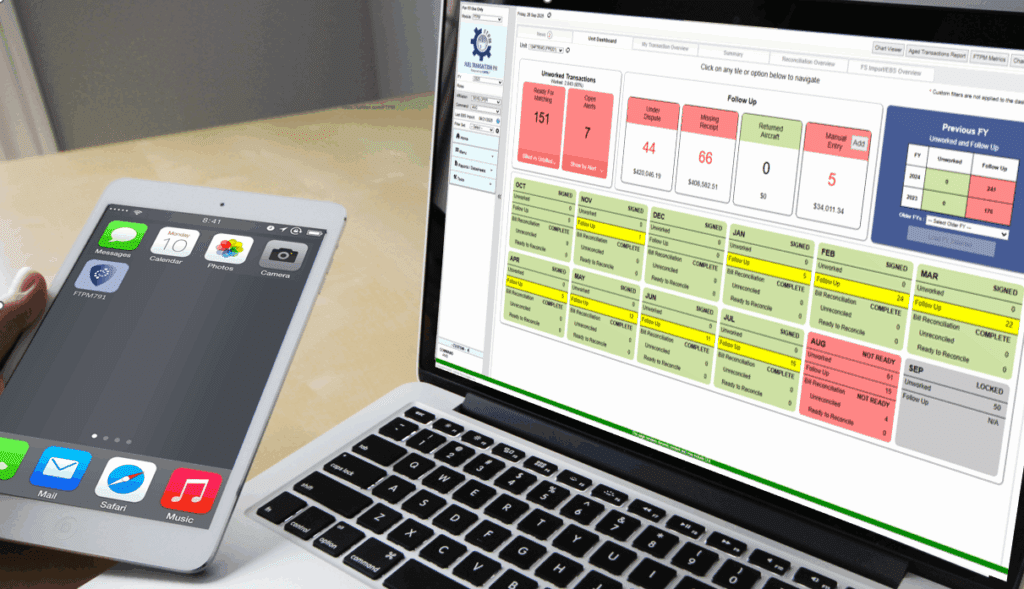
The Fuel Transaction Processing Module (FTPM) enhances the effectiveness of AFI 11-253 by minimizing human error, enforcing standardization, and automating oversight functions. The result: greater accuracy, reduced workload, cost savings, and improved audit readiness.
Key Capabilities of FTPM
- Automated Transaction Matching
- Integrates data from multiple systems for end-to-end validation of every fuel or ground service purchase.
- Ensures traceability from receipt → financial entry → payment, closing audit gaps, and supporting accountability.
Real-Time Validation and Alerts
- Continuously monitors transactions for anomalies (e.g., duplicate charges, unusual quantities, or non-contract vendors).
- Automated alerts allow issues to be addressed immediately rather than waiting for monthly reconciliation.
- Dashboards track whether required documentation (receipts, memos, SF-44 forms) has been uploaded and validated.
Standardized Templates and Digital Forms
- Enforces the standardization required by AFI 11-253, including memos and validation forms.
- Digital signatures with audit logs tie actions to individuals, improving accountability.
- Integrated electronic forms reduce paperwork loss and streamline approvals.
Reconciliation Automation
- Replaces manual, spreadsheet-based checks with automated reconciliation against vendor billing and financial entries.
- Ensures 100% of transactions are reviewed, not just samples.
- Outliers are flagged for manual attention, focusing personnel on high-risk cases.
Audit Trail and Records Retention
- Automatically archives receipts, memos, and reconciliations in a secure, searchable repository.
- Tracks who validated, who approved, and when—simplifying IG and GAO reviews.
- Cloud-based storage maintains compliance even during deployments or personnel turnover.
Training and Knowledge Retention
- Provides standardized workflows aligned to AFI 11-253 so new personnel can onboard quickly.
- Interactive guides reinforce segregation of duties.
- Built-in reminders and checklists reduce the risk of missed monthly reconciliations.
Enterprise-Level Oversight
- Delivers headquarters-level dashboards and roll-up reports for visibility across bases.
- Highlights units with late reconciliations, high exception rates, or missing documentation.
- Enables leaders to identify systemic risks proactively rather than reacting after audits.
Conclusion
FTPM does not replace the responsibilities defined in AFI 11-253—it enhances them, making them easier, faster, and more reliable. By automating reconciliation, embedding standard templates, enforcing segregation of duties, and providing a transparent audit trail, FTPM directly strengthens oversight and accountability in aviation fuel and ground services purchases.
